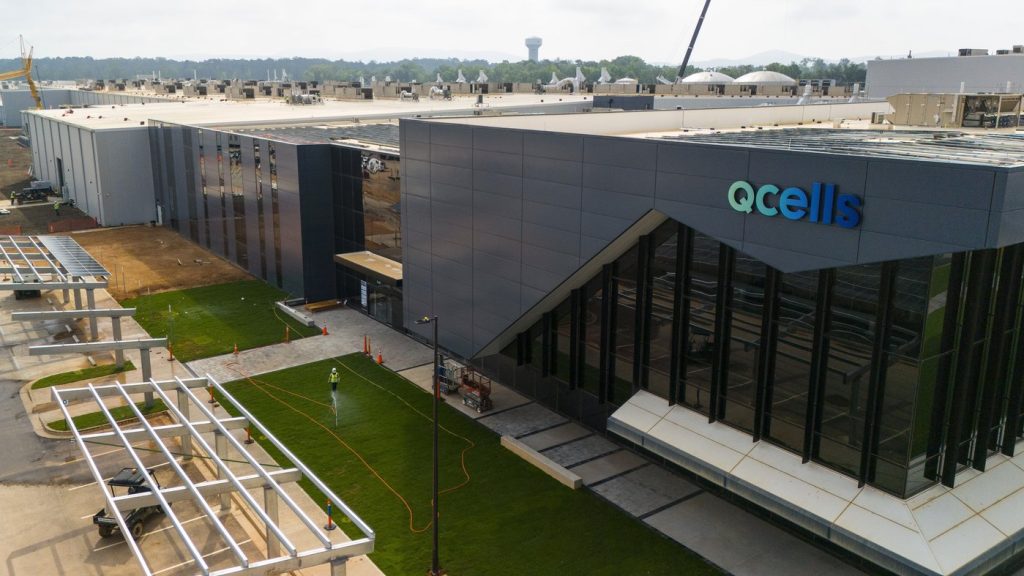CARTERSVILLE, Ga. (AP) — A recent announcement by two South Korean companies regarding a multibillion-dollar investment to establish solar panel and electric battery factories in northwest Georgia has raised significant concerns amid potential changes in federal subsidies. The factories are expected to create thousands of new jobs and transform the manufacturing landscape of Cartersville, a city with a history rooted in cotton milling before diversifying into brewing and tire manufacturing due to major corporate investments in the 1990s and 2000s.
These projects, driven partly by federal subsidies, promise substantial economic diversification. However, as Republicans in Congress push forward a tax cut bill that could eliminate these subsidies, local officials and residents worry about the future outlook for their economy. Despite being in overwhelmingly Republican Bartow County, which supported Donald Trump by 75% in past elections, local leaders express alarm about the potential consequences of undermining these financial incentives. Steve Taylor, the county's only elected Republican commissioner, noted that losing the subsidies would be "a little concerning," given the transformation the new industries are bringing to the community.
Georgia, particularly Cartersville, stands to lose significantly if the proposed cuts to the subsidies are enacted. The state has experienced a boom in clean energy projects, particularly after the passing of the Inflation Reduction Act in 2022, with investments exceeding $20 billion and promising over 25,000 jobs. Major projects include a $5 billion battery factory developed by Hyundai Motor Group and SK On, and a $2.3 billion solar panel plant operated by Qcells, a subsidiary of Hanwha Solutions. These plants aim to offer an average salary of $53,000 per year to their workers, a significant boost for the local economy.
The current legislation under scrutiny would eliminate essential tax credits for solar panel buyers, which Qcells' products currently benefit from, and would additionally impose taxes on companies importing raw materials from certain countries, including China. While Qcells would still receive some production tax credits for existing work in Cartersville, the proposed bill raises concerns about the long-term viability of local manufacturing and investment initiatives.
Scott Moskowitz, vice president of market strategy at Qcells, emphasized that discontinuing these federal subsidies could undermine efforts to bolster American manufacturing and could lead to a reliance on international suppliers. In June, 16 Republican state legislators from Georgia sent a letter urging Congress to maintain the tax breaks, arguing that reducing these incentives could hinder the state's manufacturing sector and leave opportunities open for Chinese companies.
Despite the threats posed by the new legislation, the local government maintains that it is crucial to preserve these investments. Cartersville Mayor Matt Santini expressed the expectation that businesses should be able to trust government support for projects they have invested heavily in. Nevertheless, many Georgia Republicans have remained relatively silent on the issue, despite clean energy projects predominantly locating in Republican districts, as noted by recent studies.
In favorable contrast, Republican U.S. Representative Barry Loudermilk has praised the proposed cuts, framing them as a pathway to enhance traditional energy sectors such as oil, gas, and coal, while dismissing the importance of green energy investments. Governor Brian Kemp has opted for a more neutral stance, reinforcing that it is Congress's role to determine the future of the Inflation Reduction Act. He has previously expressed concerns over provisions in the Act that hinder tax credit access for some automakers, all while positioning Georgia as "the electric mobility capital of America."
As the situation unfolds, industry leaders and local officials emphasize that prioritizing job growth and economic stability should transcend party politics. They implore that jeopardizing these key investments could have long-lasting ramifications for local economies. Senator Jon Ossoff has drawn attention to what he perceives as partisanship overshadowing economic interests, suggesting that national Republican loyalty to Trump detracts from promoting Georgia's economic future.











